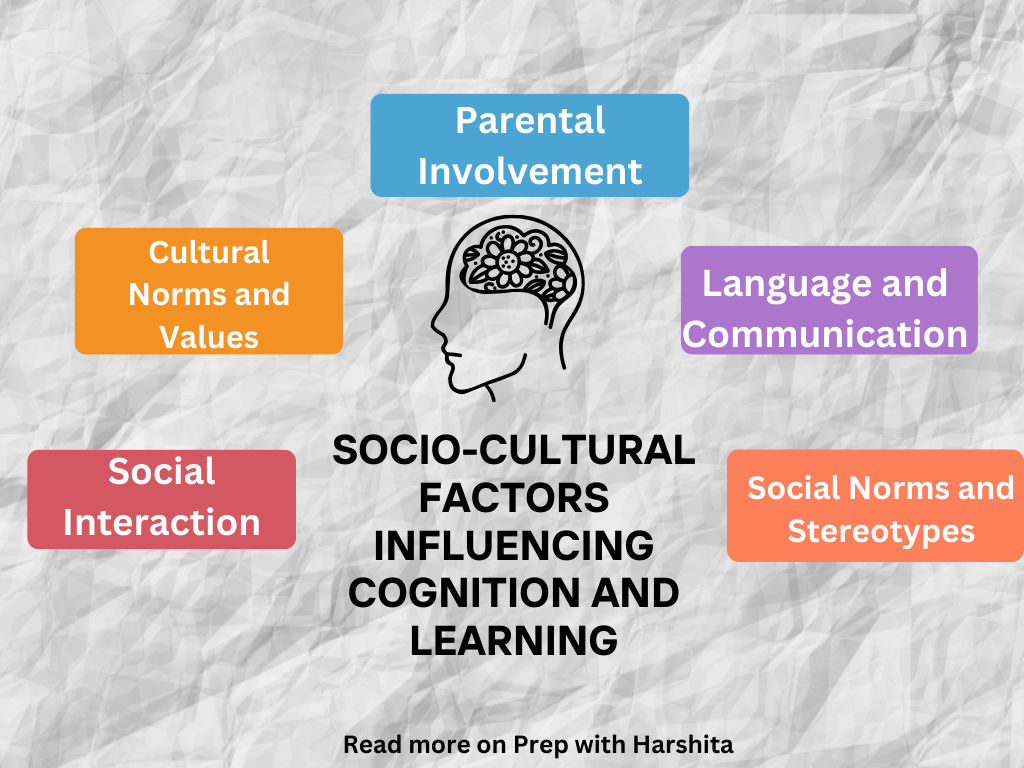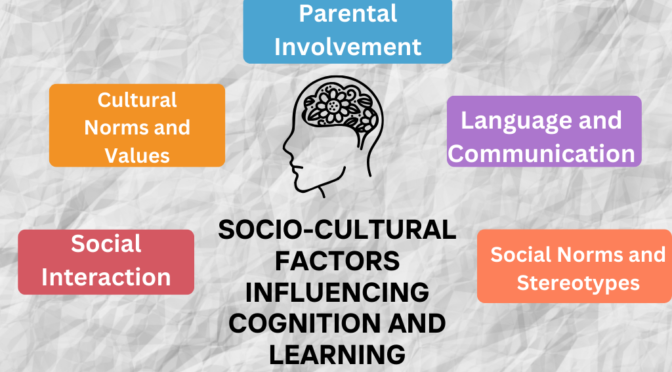Educational Practices: The educational system within a society reflects cultural values and influences cognitive development. Teaching methods, curriculum content, and assessment practices are culturally embedded and can impact how individuals engage with and process information.
Cultural Tools and Artifacts: Tools and artifacts within a culture, such as writing systems, technology, and educational materials, influence cognitive processes. For example, the availability of books, digital resources, and educational technologies can shape how individuals access and interact with information.
Social Identity and Stereotypes: Social identity, including factors like gender, ethnicity, and socio-economic status, can influence cognitive processes. Stereotypes and biases associated with social identity may affect self-perception, motivation, and performance in academic settings.
Parental Involvement: The level of parental involvement in a child’s education is a socio-cultural factor that significantly influences learning. Cultural expectations regarding parental roles, support for learning, and attitudes toward education impact a child’s cognitive development.
Also Read: Meaning of Cognition



GLOBAL BUSINESS ELITE YOUR WHOLESALE SUPPLIER OF AGRICULTURAL AND INDUSTRIAL COMMODITIES
We are a global company providing food, ingredients, agricultural solutions and industrial products that are vital for living. We connect farmers with markets so they can prosper. We connect customers with ingredients so they can make meals people love. And we connect families with daily essentials from eggs to edible oils, salt to skincare, feed to alternative fuel. https://globalbusinessltd.co.uk/
Global business elite
copper cathode
aluminium wire scrap
scrap processor
scrap cpus
waste paper scrap
fridge compressor scrap
cable scrap
scrap copper wire
waste paper for sale
ceramic cpu scrap
icumsa 100
cpu scrap
wholesale sugar suppliers uk
scrap processor
scrap central processing units
occ paper scrap
occ waste paper scrap
nut prosper globe
ocopper cathode specifications
sachet water filling and sealing machine
insulated copper wire scrap
waste paper supplier
recycled copper wire
copper scrap wire
occ waste paper suppliers in uk
processor gold recovery
waste paper supplier
ccopper wire scrap millberry